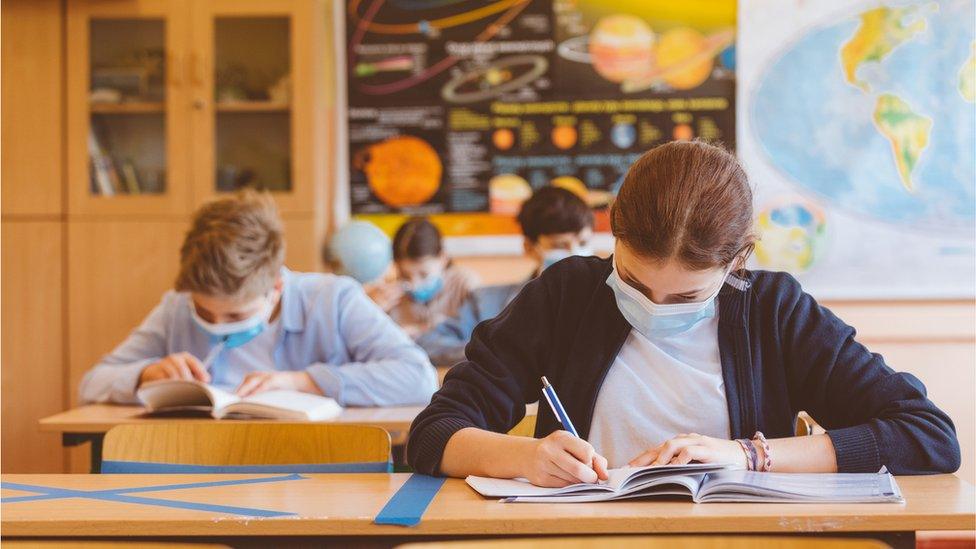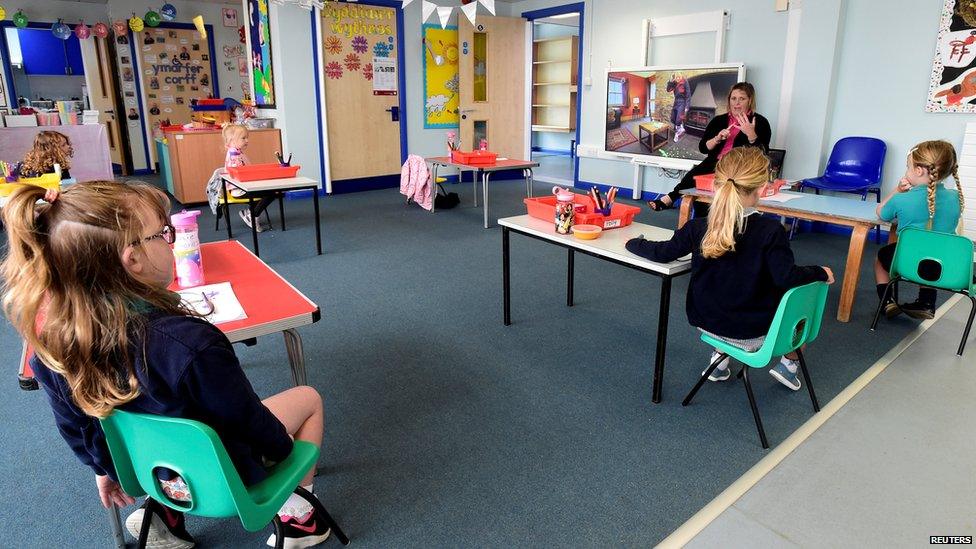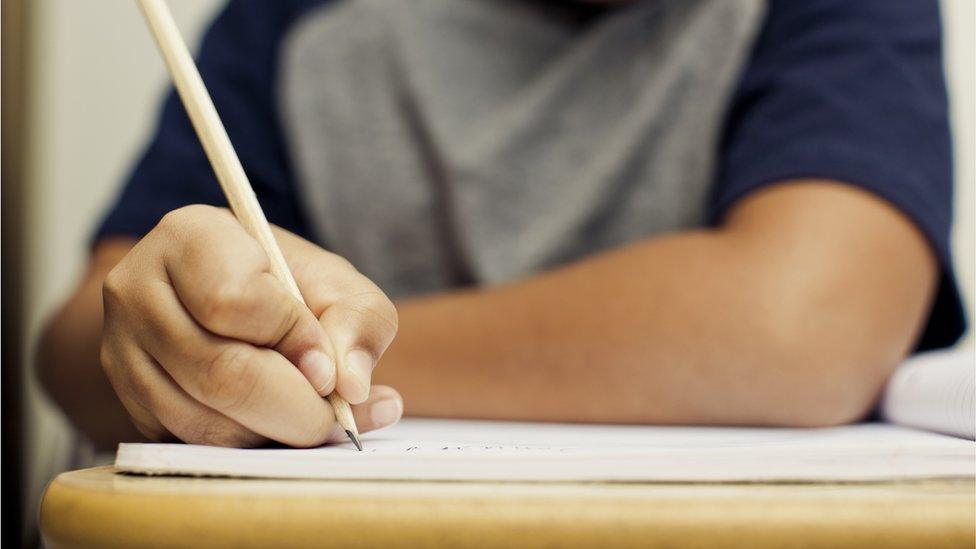Covid-19: Post-primary pupils in NI to wear face coverings in class
- Published

Post-primary pupils will be required to wear face coverings in classrooms during the new school term in 2021.
It is one of the additional safety measures outlined in a Department of Education letter to schools.
However, it is not clear if the measure will come into effect when pupils in years 12 to 14 return on 11 January.
Post-primary pupils and teachers are already expected to wear face coverings in school corridors and other communal areas.
The new guidance from the department said they will be worn in classrooms as well.
However, some pupils and staff are exempt from wearing face coverings for medical reasons.
The department issued a letter to schools on Thursday clarifying the arrangements for pupils returning to school in January.
Post-primary pupils in years 8-11 will be taught remotely for the entire month of January, though schools can decide if those in year 11 facing GCSE exams should be taught face-to-face.
However, those in years 12, 13 and 14 will attend school from 11 January, when pupils in primary schools will also return to the classroom after a week of remote learning.
Pre-schools, nurseries and special schools are expected to open for pupils from the week beginning 4 January.
The Department of Education letter also said that additional safety measures would be put in place in schools for the new term.

Pupils in primary schools will return to the classroom in the week beginning 11 January
These include "face coverings being required in all post primary settings, including the classroom, improved signage and stronger public messaging".
The department letter, and guidance from the Education Authority (EA) also issued to schools on Thursday, did not however specify if the new measures on face coverings for post-primary pupils in class would begin.
The department said they would issue updated guidance to schools on the measure in January.
The letter also said that the arrangements for the new term reflected "a fair and balanced position" by both the departments of Education and Health.
Vulnerable children and the children of key workers can also attend schools from the week beginning 4 January.
The department letter includes both a definition of children who should be regarded as vulnerable and which occupations are "key workers".
Vulnerable children include, for instance, children with a statement of special educational needs, those with an assigned social worker or on the child protection register, or children who are refugees or asylum seekers.
The list of key worker occupations is similar to that previously specified in March 2020, although those working in retail which is permitted to open have been added to the earlier list.
Related topics
- Published23 December 2020

- Published12 August 2020
